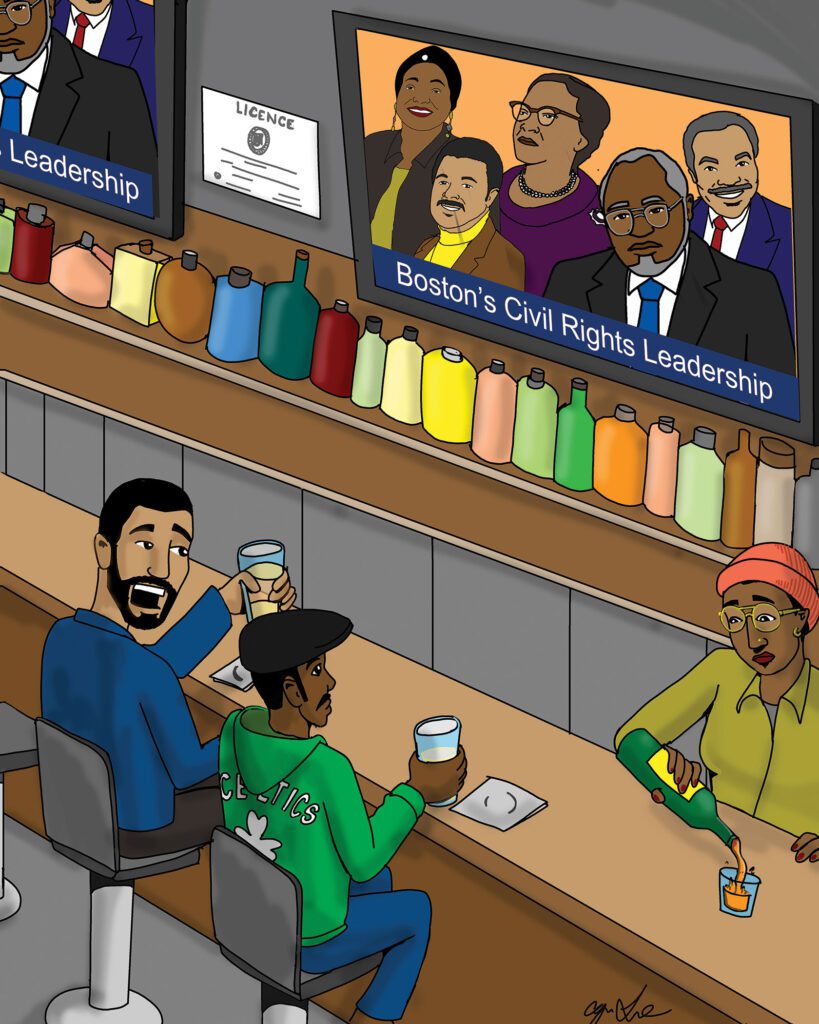
As we continue to honor our heritage during Black History Month, we should use these brief four weeks to remember the historical impact of famous Black Americans from Boston like Crispus Attucks, who died in the Boston Massacre in the run-up to the Revolutionary War; W.E.B. Du Bois, a Great Barrington native who earned a Harvard Ph.D. and wrote in “The Souls of Black Folk” that “the problem of the 20th century is the problem of the color line”; and William Monroe Trotter, a Du Bois contemporary and crusading Boston journalist who challenged President Wilson to end colonialism at the end of World War I.
But we also need to honor the legacy of those who led Black Boston into the decades after World War II, when the city’s Black population grew with increased migration from the South and the Caribbean. Community leaders like Melnea Cass, “the First Lady of Roxbury,” stood on the shoulders of her famous predecessors in fighting for civil rights and social justice. Ruth Batson worked tirelessly to challenge the city to improve public education for Black children. State Sen. Royal L. Bolling Sr. and his sons, Boston City Council President Bruce Bolling and state Rep. Royal L. Bolling Jr., formed a powerful legislative trio pushing for positive change, especially economic opportunity. State Sen. Bill Owens made sure Roxbury Community College, which recently celebrated its 50th anniversary, finally got off the ground.
Former Boston NAACP President Ken Guscott, a businessman and developer, led civil rights efforts in the city before going on to literally build the only skyscraper on the Boston skyline built by a Black-owned company. Leon Nelson’s legal and community activism forced multiple public agencies and private companies to provide more hiring and contract opportunities for Black professionals and minority-owned firms. He created the original Roxbury Chamber of Commerce, paving the way for the Black Economic Council of Massachusetts half a century later, and also took on redlining and fought for housing and health equity. Archie and Elizabeth Williams founded Freedom Foods and Roxbury Technologies — separate companies that addressed the issues of food deserts and technology education 50 years before these challenges became a rallying cry for political leaders throughout the state.
When we think about what motivated our legacy leaders, it is clear they chose to tackle the problems right in front of them – not looking away but taking on challenges around housing, health care, jobs and education in ways that had an immediate impact on the lives in their community.
Who knows how much history will remember them? But one thing we know is that much of the progress made in Boston’s Black community in the last half of the 20th century was due to their leadership and hard work.
At the same time, it’s important to remember that making a difference is something we can all do. You don’t have to be a community leader, an elected official or an agency director. You can participate in community events, volunteer with civic groups or help with charitable work through your local church. What counts is that you care about your community and that your caring takes the form of action.
I recently attended an event honoring the “Legacy Pioneers: Champions of Equity.” While singling out current leaders in the fight for equity and social justice, the evening also paid tribute to earlier pioneers, all now gone, whose names include many of those mentioned above. They all worked to make our community, our Commonwealth and our country a better place. They also taught us that the path to a more just and equitable society is paved not only with the actions of mass movements and organized protest, but also with what Madam C.J. Walker, America’s first black millionaire, said, “Don’t wait for opportunities. Create them.” This is some thing we all can do in our community in small ways which can make a large difference over time.
But make no mistake. We live at a time when conniving forces seek to take away our rights and freedoms, to limit our opportunities and access. At the Legacy event, it was inspiring to hear our current political, community and business leaders honor those who came before and rededicate themselves to the fight for progress. We face new threats in our political, educational, cultural and business arenas by those who would undo the hard justice won by our ancestors. Black History Month provides a much-needed opportunity to review that progress, honor those who made it possible, and pledge to do our part to ensure that it never falls by the wayside.







